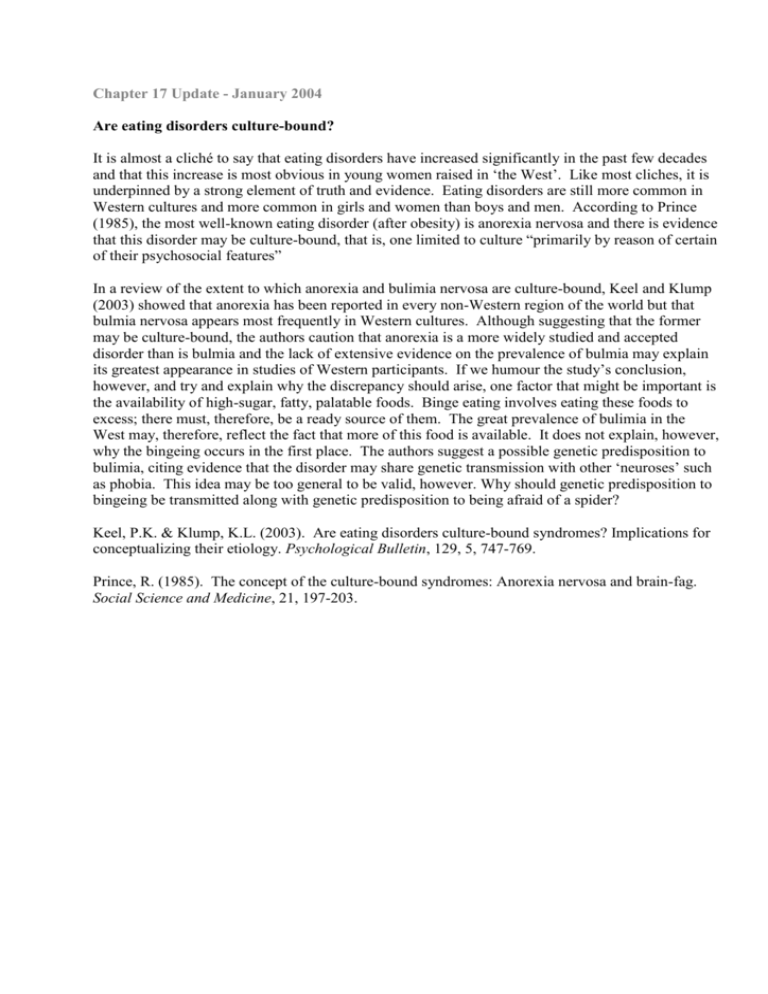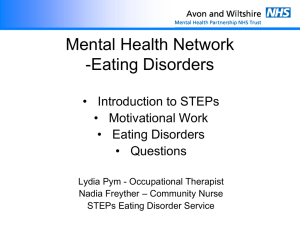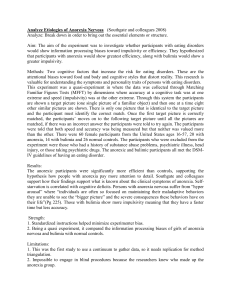Chapter 17 Update - January 2004
advertisement

Chapter 17 Update - January 2004 Are eating disorders culture-bound? It is almost a cliché to say that eating disorders have increased significantly in the past few decades and that this increase is most obvious in young women raised in ‘the West’. Like most cliches, it is underpinned by a strong element of truth and evidence. Eating disorders are still more common in Western cultures and more common in girls and women than boys and men. According to Prince (1985), the most well-known eating disorder (after obesity) is anorexia nervosa and there is evidence that this disorder may be culture-bound, that is, one limited to culture “primarily by reason of certain of their psychosocial features” In a review of the extent to which anorexia and bulimia nervosa are culture-bound, Keel and Klump (2003) showed that anorexia has been reported in every non-Western region of the world but that bulmia nervosa appears most frequently in Western cultures. Although suggesting that the former may be culture-bound, the authors caution that anorexia is a more widely studied and accepted disorder than is bulmia and the lack of extensive evidence on the prevalence of bulmia may explain its greatest appearance in studies of Western participants. If we humour the study’s conclusion, however, and try and explain why the discrepancy should arise, one factor that might be important is the availability of high-sugar, fatty, palatable foods. Binge eating involves eating these foods to excess; there must, therefore, be a ready source of them. The great prevalence of bulimia in the West may, therefore, reflect the fact that more of this food is available. It does not explain, however, why the bingeing occurs in the first place. The authors suggest a possible genetic predisposition to bulimia, citing evidence that the disorder may share genetic transmission with other ‘neuroses’ such as phobia. This idea may be too general to be valid, however. Why should genetic predisposition to bingeing be transmitted along with genetic predisposition to being afraid of a spider? Keel, P.K. & Klump, K.L. (2003). Are eating disorders culture-bound syndromes? Implications for conceptualizing their etiology. Psychological Bulletin, 129, 5, 747-769. Prince, R. (1985). The concept of the culture-bound syndromes: Anorexia nervosa and brain-fag. Social Science and Medicine, 21, 197-203.











